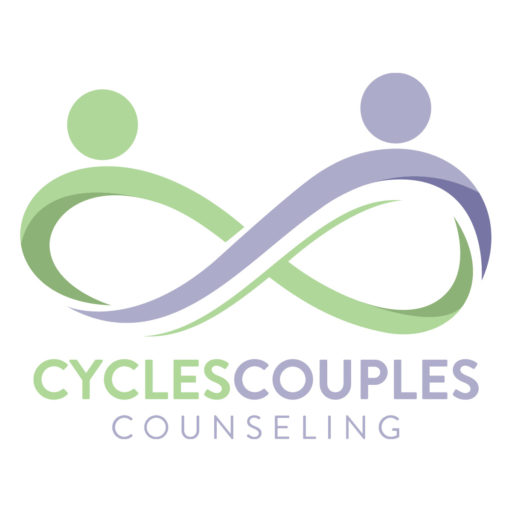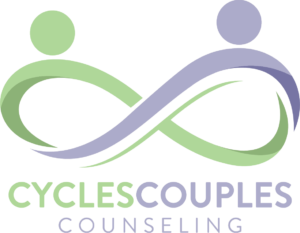Anger Management is a phrase many couples throw around in couples therapy. They insist their partner needs to go work on their "anger issues."
"He's always yelling and it's terrifying."
"She is so dramatic. She freaks out over everything."
Frequently, partners try to shut their reactions down, by either doing one of two things—yelling back or going away. Rarely, if ever, does this help to make things more connected and safer. Sometimes attempts at anger management can even escalate things.
“The more he yells, the more I shut down. The more I shut down, the more he yells.”
“The more she yells, the more I defend. The more I defend, the more she yells, until one of us ends up leaving.”
These are the common negative cycles involving anger. In Emotionally Focused Couples Therapy, you will work with your partner to understand this self-sustaining negative feedback loop.
Anger Management vs. Anger Expression
When most people think of anger, they have negative associations. Anger is something that needs to be released, not avoided or contained. Anyone who has anger, specifically men, are automatically thought to need anger management.
Contrary to popular belief, most therapists believe you should do just the opposite. Anger is something that needs to be heard!
Think of it like a megaphone. Your partner is protesting, or even sounding the alarm about disconnection. Counter intuitively, they are often yelling to keep things safe or warn about the danger of distance.
"Yelling at me will not bring me closer!"
Believe it or not, you’re not the only one scared for the relationship. Often times, angry partners are desperate and afraid too.
Both partners have strategies to keep the relationship safe. While you may be the one to avoid the conflict, shut down and go under the radar, your partner may do just the opposite with anger.
Anger is a very powerful emotion. It’s a call to action intended to get things done, and fast!
Sound the alarms! We need a relationship overhaul!
"But this is emotional abuse!"
“Emotional abuse” is a popular buzzword in many online articles. Certainly it is something to be educated about and protect yourself from if you are in danger. However, it’s important to clarify what’s abusive and what is just negative emotions.
It is not abusive to:
- Argue
- Raise your voice
- Respond with hurt
- Be blunt
While we may hope that everyone can clearly and tactfully express his or her emotions in a calm way, we all know that this is not always realistic.
Remember you are one of the most important things in your partner’s life, and they are not going to take any relationship risk lightly. Attachment panic is intense and even terrifying.
Asking them to manage their anger can sometimes come off as a dismissal or even an invalidation of their fear.
What is emotional abuse?
Emotional abuse exists around a power and control dynamic. A secure close bond isn’t the goal. This behavior is more about dominance.
Partners typically use extreme methods such as hysterical screaming, name calling, or shaming. In some of the worst cases this can look like threats of physical violence or even lead to such altercations. Partners may also use manipulation or gas lighting to isolate or control another.
This behavior is never okay. Partners of this nature should seek anger management therapy or groups.
"What will my therapist do if they think I am getting abused?"
In traditional Emotionally Focused Therapy, couples will have one joint session, followed by two individual sessions. In your individual therapy session, please notify your therapist of any safety concerns or threats to your wellbeing. This is standard intake question during those sessions.
Ethically, therapists will never put you in a position to be vulnerable to abuse. They have a duty of nonmaleficence in their licensure code and serve to do anything in their scope to keep you out of harm's way.
Therapists are required by law to report any life threatening violence between partners or violence witnessed by children or other dependents.
"Okay, maybe it's not abusive, but I still don't like anger."
You're right. No one likes anger. Some expressions of anger aren’t appropriate, but we can’t just completely block that whole emotion!
That’s where therapy comes in to play. EFT couples therapists will work with your angry partner to help them express their intentions in a more palatable way.
Therapists will ask questions about the inner experience of anger. Typically angry partners’ bodies experience sensations that look a lot like fight or flight survival responses.
Therapists will help them to identify the cue or perceived threat to their relationship, the meaning they make of it and subsequently what they choose to do to act on it. This assembly can often be the first step to de-escalation. Name it to tame it!
For Example:
- Cue: My partner walking away/shutting down/telling me to settle down
- Outside Emotional Experience: Anger
- Meaning Making: They’re leaving me. /We will break up!/They don’t love me anymore!/They don’t care about me
- Inner Emotional Experience: Fear/Hurt
- Bodily Experience: Tight chest/Panic/Wide eyes/Rapid heart beat
- Action: Yell/Follow/Defend/Protest
Your therapist will then help your partner share this experience with you. In Emotionally Focused Therapy we call this an “enactment.” It’s a mini way to help you both have the same conversation differently.
At Cycles Couples Counseling we want to help you express your angry feelings better, not manage them or eliminate them.
It takes two to tango!
Remember, your reaction plays just as big a role in fueling this negative cycle. Consider your response to your partner’s distress.
Are you responsive and securing?
Are you distant and defensive?
How does this impact your negative cycle?
What do you do when your partner is angry? What’s the meaning you make of their yells? How do you respond to them? What are you trying to accomplish in that moment?
For Example:
- Cue: My partner is yelling/arguing.
- Outside Emotional Experience: Defensive/Anxious
- Meaning Making: They just don’t love me./I will never get it right. /We will keeping arguing forever./We will break up.
- Inner Emotional Experience: Fear/Hurt
- Bodily Experience: Tight chest/Panic/Wide eyes/Rapid heart beat
- Action: Freeze/Shut down/Leave/Defend
Your therapist will help you to stay present and share this with your partner in a more responsive way. Frequently, partners advocating for anger management end up abandoning their partner in their highest time of need, rather than connecting.
Through Emotionally Focused Therapy you can learn to organize and assemble your emotional experience and share it with your partner in a more meaningful way. You don't need anger management. You need anger expression to stop this negative cycle.
Interested in learning how to navigate your angry arguments? Schedule a free consultation with us to learn more!
Learn more about EFT Couples Therapy in California.

